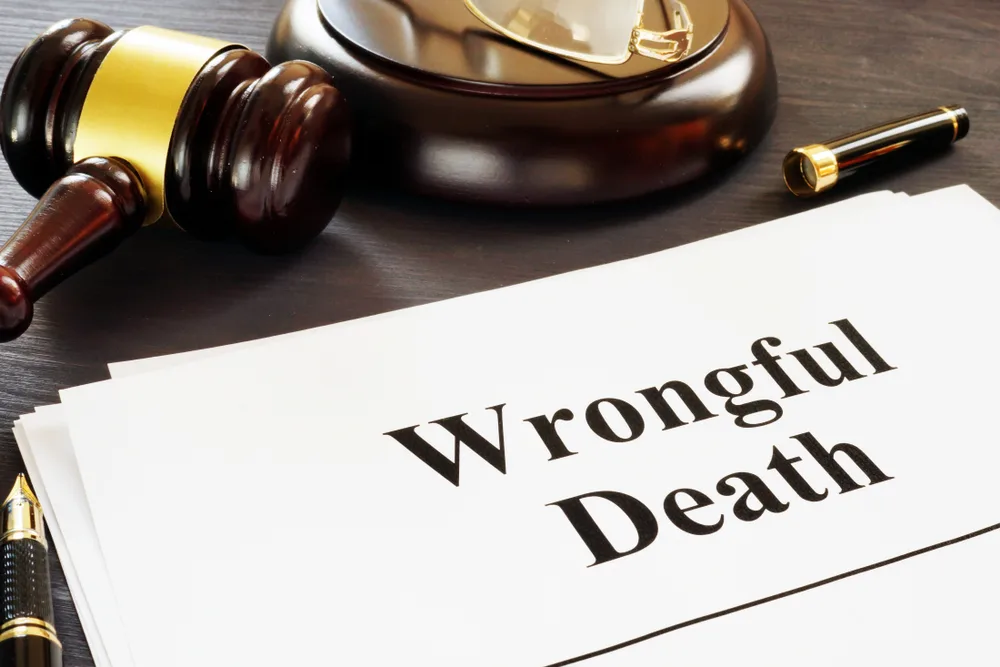A decedent’s family can get money in a Dallas wrongful death claim or lawsuit. Under Texas Civil Practice and Remedies Code § 71.004, only spouses, children, or an appointed executor can recover compensation.
A personal injury lawyer from our team can work with you to determine if your relationship to the decedent qualifies you for civil action. Ensuring that you are eligible to pursue civil action is necessary before moving forward.
Wrongful Death Benefit Recipients in Texas
In order to file a wrongful death claim or lawsuit in Texas, your relationship to the decedent must qualify under the law.
In addition to the decedent’s spouse, children, and the appointed executor, others may also qualify to seek compensation. These include adopted children and common-law spouses, under certain conditions. Siblings, on the other hand, are not eligible for pursuing compensation.
The death of your loved one can leave you in a financial bind if you were dependent upon your lost family member’s income. A personal injury lawyer from our firm can determine if your relationship to the victim qualifies you under Texas law to pursue civil action for their death.
Types of Compensation Possible in a Wrongful Death Case
In addition to loss of income, the following types of compensation are often possible:
- Final medical expenses for the decedent
- Funeral and burial costs
- Loss of inheritance
- Loss of companionship
A funeral is an unexpected and often expensive cost for those who did not prepare financially for a loss. The Federal Trade Commission (FTC) states that funeral costs can range into the thousands of dollars. When the death of your loved one is due to the negligence of another person, the liable party should pay for these costs—not you.
How Do I know if I Have a Wrongful Death Case?
Essentially, if we can prove that someone else’s negligence caused your loved one’s death, you may have a wrongful death case. Negligence may be intentional (such as in a criminal case) or unintentional.
In some situations, negligence may be clear. For instance, if you lost a loved one in an accident caused by a drunk driver, this may be more straightforward to prove. However, some cases can be more complicated. We can work to gather the evidence necessary to show a direct link between someone else’s carelessness and your loved one’s passing.
Forms of accidents that may qualify for a wrongful death case include:
- Accidents involving cars, trucks, motorcycles, and pedestrians
- Construction accidents, including falls, being struck by an object, or caught in between two objects
- Oilfield accidents
- Slip and falls
We can help you prove your case.
There Is a Deadline to Take Action in a Wrongful Death Case
The statute of limitations for filing your wrongful death lawsuit is two years under Texas Civil Practice and Remedies Code § 16.003. Should you miss the deadline for filing a lawsuit, you may risk losing your chance for compensation forever.
We recommend that you begin the process as soon as possible. This way, you can ensure that you retain the right to seek compensation.
Steps That Family Members Can Take to Protect Their Case
We understand that you may be overwhelmed by the prospect of a legal case shortly after losing a loved one. However, there are certain steps you can take to ensure that your family’s rights are protected.
Refrain From Accepting Early Settlement Offers
An insurance company’s efforts to contact you are most likely their attempt to connect with you before you secure legal representation (who can help you advocate for fair compensation). No matter how friendly they seem and how much they appear to want to help you, an insurance company’s top priority is to protect their best interests.
If you receive a settlement offer soon after your loved one’s passing, remember that this may be a low offer—one that may not fully compensate you for all of your losses. We can help you understand the worth of your case and advocate for a fair settlement or award.
Keep Conversations With an Insurance Company to a Minimum
An insurer may also call you asking for additional information about your case. You are under no obligation to give them these details or provide a recorded statement. In fact, statements you make to an insurance company could be used to lower the value of your case.
If an insurer contacts you with questions about your case, you can refer them to your legal team. We can handle all of these conversations for you.
Get a Free Consultation to Understand Your Options
Our team offers free consultations so that you can learn more about your case. We are here to clarify all of your questions, including:
- What qualifies as a wrongful death case?
- Who is able to seek compensation in a wrongful death case?
- What forms of damages are available?
- How do these kinds of cases proceed, and what steps are necessary?
You Can Get Legal Help With No Upfront Fees Required
We know that you may be facing financial challenges at this time, and we don’t want to add to those challenges.
Our firm works on a contingency-fee basis. This means that you don’t have to pay anything to get started on a case—we only collect our fee if we win. If we don’t win your case, you don’t owe us anything.
Get Help From the Strong Arm of Loncar Lyon Jenkins
Wrongful death claims and lawsuits are often complex. You do not have to deal with your case alone.
Lean on the Strong Arm of Loncar Lyon Jenkins. If you are unsure if you qualify as a plaintiff due to your relationship with the decedent, contact us. A member of our team can review your case and determine if you qualify for legal action. Call us now for a free case evaluation at (877) 239-4878.


